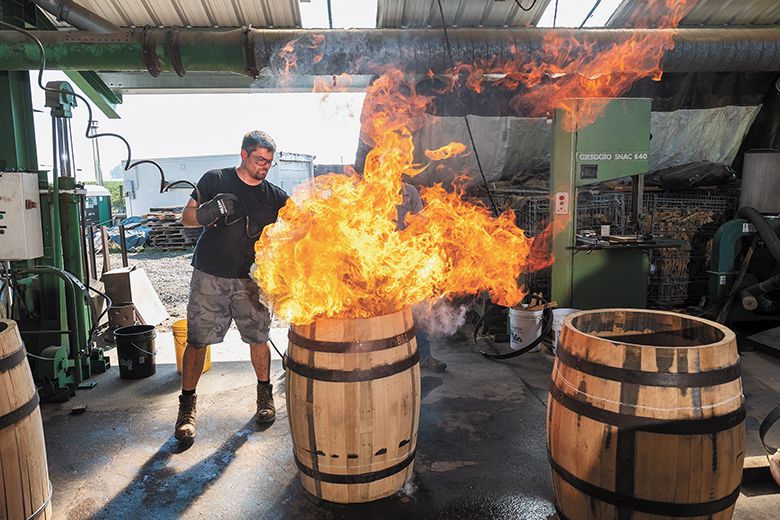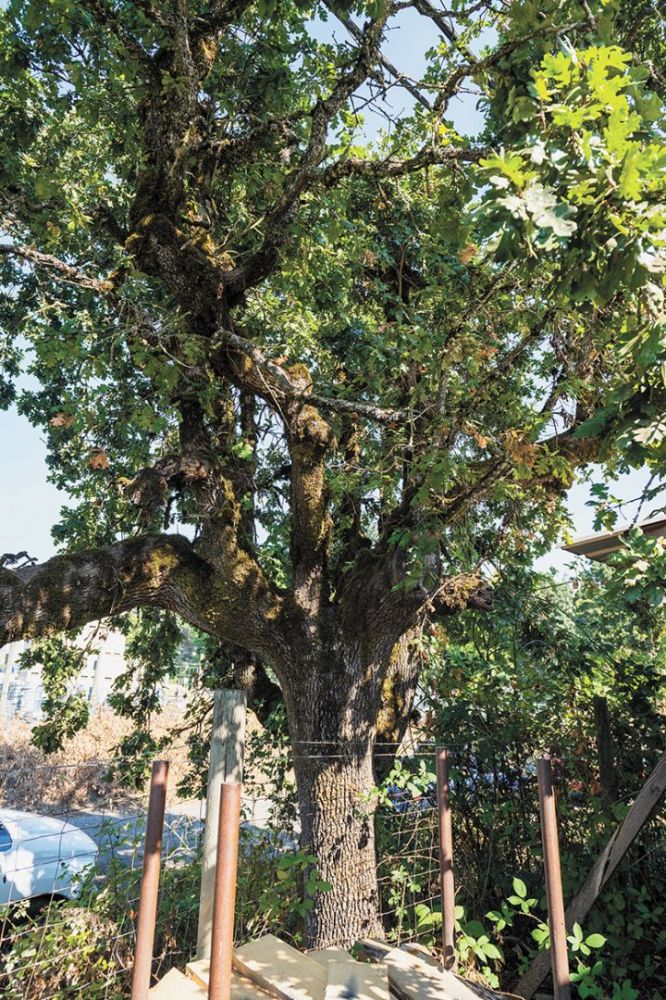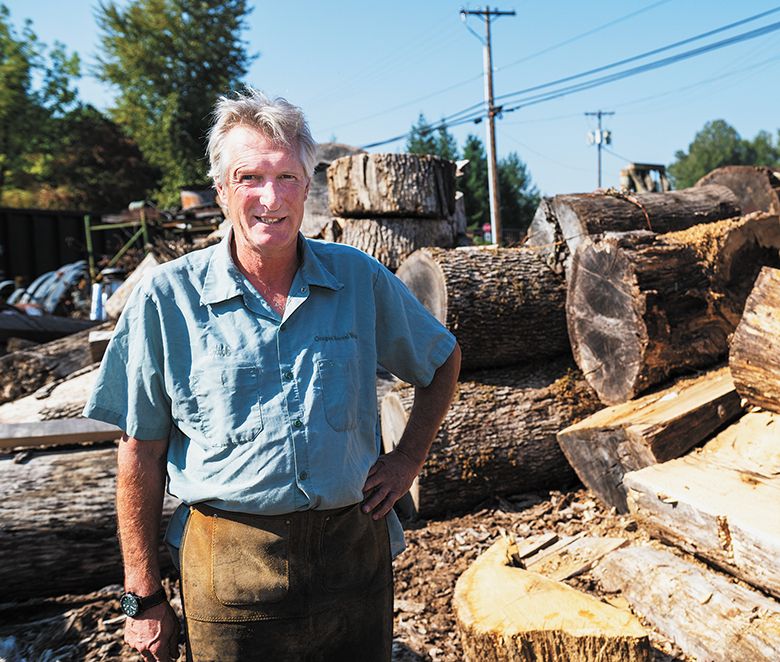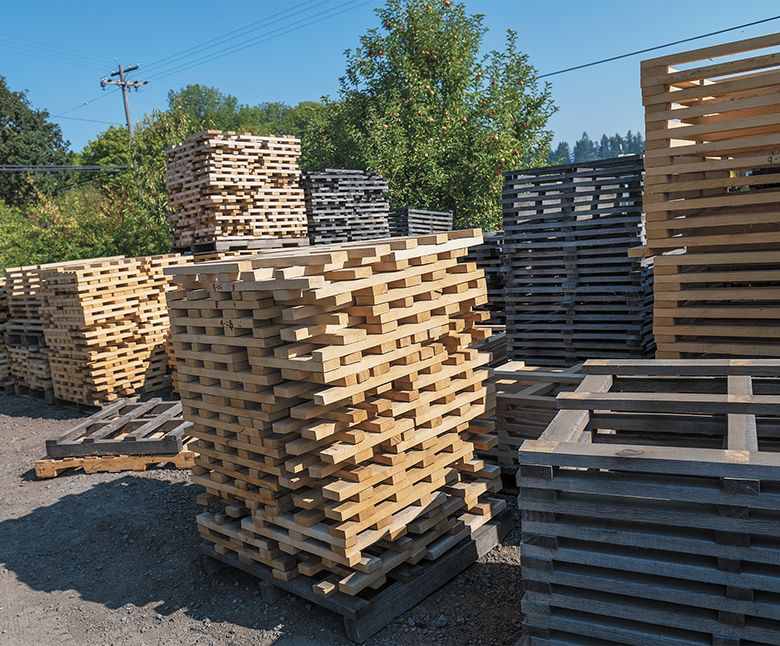Roll Out the Barrel
Learn more about Oregon's only cooperage




By Kerry McDaniel Boenisch
The journey began in 1992 when Rick DeFerrari, founder of Oregon Barrel Works, bought a Eurail pass. After studying forestry and engineering at Oregon State University, DeFerrari planned to visit Europe.
During high school, he lived next door to the Ponzis on Scholls Ferry Road, often eating lunch with Luisa and Maria. DeFerrari worked several grape harvests, so the Ponzi family helped with an introduction to the respected Burgundian cooperage François Frères Tonnellerie.
Upon arriving at the French cooperage, DeFerrari’s zeal and forestry knowledge quickly earned him a job offer, and he spent the next 18 months learning all stages of barrel production from tree to finished product.
At the 1988 International Pinot Noir Festival, a Wall Street Journal reporter was captivated by DeFerrari, then director of François Frères d’Oregon, as he explained the barrel-making process to event participants. According to the reporter, while everyone’s noses were in their wine glasses, DeFerrari was looking up, admiring the glorious Quercus garryana in Linfield University’s famed Oregon white oak grove.
In 2000, DeFerrari founded his own barrel-crafting company. The Oregon Barrel Works team, composed of a skilled artisan trio: DeFerrari, Travis Scofield and Ayden Wescom, is a complete cooperage operation. Everything from sourcing lumber, milling, seasoning, building and toasting is performed on-site. Dot, the black and white shepherd mix, serves as the shop mascot, keeping the mood light by dropping her ball for visitors to toss.
Under DeFerrari’s expert guidance, Oregon Barrel Works produces custom-made barrels from Oregon white oak, known as Quercus garryana. Among Northwest Native American cultures, the trees are both culturally significant and revered as a keystone species essential for survival. Tribes tended the oak savannas, relying on the trees for food, medicine, tools and habitat management.
On a beautiful fall day beneath a towering garryana oak, I watch as DeFerrari and his crew artfully toast wine and whiskey barrels to 400 degrees Fahrenheit. A magnificent plume of flames rises from each barrel as the propane torch adds a final char. Burgundy barrels for Fossil & Fawn, Boedecker Cellars and Domaine Serene are heated alongside those made for whiskey. Small flames flicker in the barrel bottoms, emanating a rich, toasted oaky fragrance.
An amendment to the Federal Alcohol Administration Act, signed by President Franklin Roosevelt in 1938, required bourbon be aged in “new charred oak containers.” Due to its abundance and availability, American oak was, and still is, the most common type of wood used for bourbon barrels. One of DeFerrari’s biggest clients is Buffalo Trace, the oldest continuously operating distillery in America.
DeFerrari carefully documents origin details about all the locally harvested trees, including the specific hillside where they once grew. Starting with a magnificent pile of freshly milled oak logs, he pares each tree down to a square stack of staves. DeFerrari has even been hired to source trees at vineyard sites, creating distinctive barrels from a property’s wood.
DeFerrari holds up a three-year-old stave, emphasizing the importance of air drying. “We stack the wood outside, exposing it to the weather. Uncovered, it’s hit by all the elements– rain, snow, sunshine, everything. This breaks down the wood, making it especially good for aging Pinot and Chardonnay. It’s vitally important, with the Oregon air, to drive out the moisture. Breaking down the components of the wood shows up later in the wine. So, when we air dry it’s really seasoning,” he explains.
Oregon Barrel Works’ sustainability extends beyond creating barrels from fallen vineyard trees. Rock Hill Farms in Lebanon uses sawdust created during the milling process to cultivate mushrooms. DeFerrari has also worked with Yamhill Soil & Water Conservation District to harvest acorns. In an effort to regenerate Oregon’s native oak trees, the young saplings grown from the acorns are planted for future generations.
Oak alternative products, barrel renewal systems and chips are all produced on-site. Oregon Barrel Works has the capacity to build a variety of custom oak vessels, including upright tanks, oval casks and eggs in a variety of sizes to meet a winery’s specific needs. The team also provides custom repair and warranty services for barrels made by other cooperages, ensuring every piece of oak continues to tell its story– from forest to bottle.
Kerry McDaniel Boenisch is an author, speaker, wine judge and "Wine Sisters Cheers to Change" Vlog co-host with Atlanta, Georgia Corks and Cuvee wine store owner Regina Jones Jackson. She is currently working on her fourth book, “Fall Down, Stand Up, Learning From Loss Amidst the Vines— The Beginners Guide to Grieving, Empty-nesting and Finding Joy,” due out this fall. Her three books are “Vineyard Memoirs,” “Dirt+Vine=Wine” and “Intertwined— Grief, Gratitude and Growing a Vineyard.”









